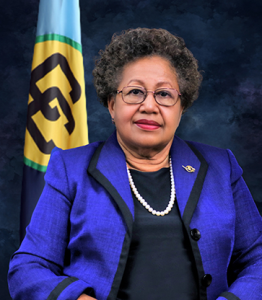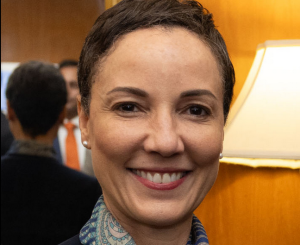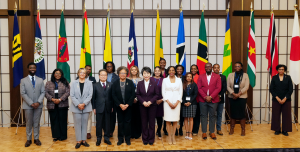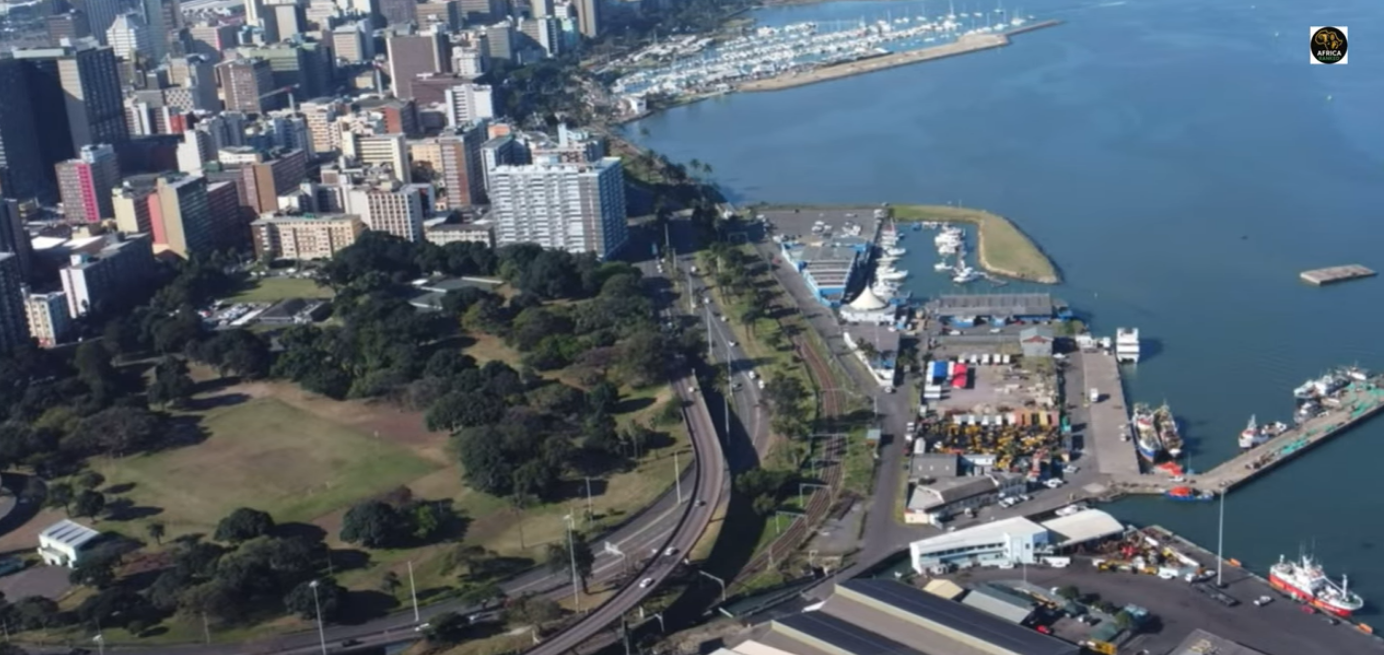By CARICOM
Photos: IBW21\Yhomo Hutchinson\CARICOM\Wikimedia Commons
(CARICOM Secretariat, Turkeyen, Greater, Georgetown, Guyana) – The Caribbean Community (CARICOM) and South Africa have agreed to conduct more regular dialogue and have committed to formalising the mechanism to do so.

This was one of the main action points emanating from a CARICOM-South Africa Ministerial Meeting held via video conference on 22 March 2024. CARCIOM also reaffirmed its commitment to signing a Memorandum of Understanding (MoU) with the African Union (AU) to establish a framework for cooperation between the sides.
CARICOM Ministers with responsibility for foreign affairs engaged with their South African counterpart, Her Excellency Grace Naledia Mandisa Pandor, Minister of International Relations and Cooperation of South Africa, in a meeting co-chaired by Jamaica’s Minister of Foreign Affairs and Foreign Trade, Senator the Hon. Kamina Johnson Smith and Minister Pandor.
The two sides exchanged views on the ongoing situation in Gaza and in Haiti, climate change and financing, development financing, and the imminent Fourth International Conference on Small Island Developing States (SIDS) to be held in Antigua and Barbuda. The sides also discussed CARICOM-AU trade relations and the development of infrastructure to facilitate trade between the Community and Africa.

Speaking at the opening, CARICOM Secretary-General, Dr. Carla Barnett said the meeting marked a renewal of high-level interaction between CARICOM and South Africa.
She recalled past engagements with the late South African President Nelson Mandela in Saint Lucia in 1998, with former South African Presidents Thabo Mbeki and Jacob Zuma in 2003 and 2009, respectively, and more recent engagements in the multilateral sphere such as the Commonwealth.
“CARICOM has enjoyed strong political ties with South Africa. The Community was public and unrelenting in its opposition to apartheid. Today, our advocacy focuses on current challenges, such as accelerating the negative impact of climate change, the urgent need to reform the global financial architecture to achieve greater equality and relevance, building food and nutrition security, and threats to regional security,” the Secretary-General stated.
Dr. Barnett highlighted South Africa’s support to the Community’s fight against COVID-19 stating,
“South Africa, during its African Union chairmanship, facilitated CARICOM countries to access the African Medical Supply Platform for vaccines during the COVID-19 pandemic. This was followed by a series of reciprocal visits between African and Caribbean leaders, which led up to the first CARICOM-Africa Summit in September 2021.”

Senator Johnson-Smith in her remarks called attention to the timeliness of the engagement.
“This meeting is being held at a time of grave uncertainty about the future of the international system. The consequential interconnectedness of world events has increasingly wide and often negative ramifications on our national economies and the life and livelihood of ordinary citizens.”
Considering these realities, she said that no country, regardless of its stage of development, can achieve optimum prosperity for its people without the support of bilateral, regional, and multilateral partners.
Against this background, solidarity is “more important than ever.”
“We proudly stood with you in the struggle against apartheid and continue to do so in the fight against non-communicable diseases, the proliferation of arms, and in drawing attention to the moral stains of the transatlantic slave trade. In the most disturbing war in Gaza, we are agreed that there must be an end to the war and the pursuit of a two-state solution as the only sustainable path to peace,” Minister Johnson-Smith said.
Minister Pandor welcomed the opportunity to concretise the “Pan-African agenda” which political and thought-leaders such as Mandela, Mbeki, Marcus Garvey, and W. E. B. Du Bois propositioned for Africa and its Diaspora.
Those forward-looking thoughts “held in a very difficult period of Black history,” Minister Pandor said, should motivate CARICOM, the African Union and South Africa to build stronger bonds of friendship.
CARICOM Foreign Ministers commended South Africa’s leadership in executing proceedings at the International Court of Justice, underscored the need for an immediate ceasefire and called for the delivery of humanitarian assistance in Gaza. They also reiterated the call for a two-state solution as the only viable path for peace between Israelis and Palestinians.
On climate financing and financing for development, they highlighted the need for solidarity among the global south to ensure the interests of developing countries are pursued in the international multilateral arena.
CARICOM foreign ministers called on South Africa’s support for global recognition of the Bridgetown Initiative as a more effective development financing tool, to address the inherent challenges that are experienced by SIDS.
They also restated the need for global adoption of the Multidimensional Vulnerability Index which SIDS have been leading in the United Nations (UN) system, for a measurement that recognises their ecological and economic vulnerabilities, going beyond the use of Gross National Income in development financing.
Foreign Ministers noted the increased collaboration between Africa and CARICOM Member States through the African Export-Import Bank’s efforts to promote and develop trade between both regions. Foreign Ministers also acknowledged the need for regular engagement between CARICOM and South Africa, welcoming the proposal for the convening of the First CARICOM-African Union Ministerial Meeting.
The meeting received an update on CARICOM’s continued good office’s role in Haiti. In this vein, Foreign Ministers requested South Africa’s support to maintain international attention on the situation in Haiti to facilitate a transition to peace and stability, amid myriad global challenges.








